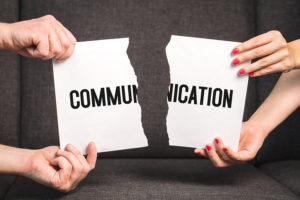Going through a divorce is stressful enough for the couple involved, but when children are added to the mix, it can bring a child’s fears to the forefront, mainly when the divorce is high conflict. Parents need to remember that children did not ask for the divorce, and they certainly did not ask to be put in the middle of a messy divorce.
We often get calls asking if we provide therapy for children – the answer is YES. However, we will only work with children when both parents are involved.
Divorce can trigger a cycle of child anxiety. They suddenly find their world being torn apart as the family begins parenting from two homes. And, often, the child must adjust to living in a new home or going to a new school and coping with their parent’s split. Divorce can also increase a child’s aggression, raise separation anxiety issues, and negatively impact social and school performance. It can also increase the stress levels in children who already suffer from anxiety issues or mood disorders and can initiate anxiety-related concerns in children who do not usually have them
Does therapy help – YES. However, when parents place the child in the middle, they consistently argue or fight and disrespect each other; no therapy in the world will help the child manage unless the parents begin to examine their behaviours and their impact on their children.
When parents’ divorce, children can react by showing:
- Regressive behaviors (bedwetting, tantrums, thumb sucking, refusing to go to bed)
- Rebellious behaviors (anger, disobedience, or (in an older child) disregard for the parents)
- Increased episodes of crying or whining
- Feel “sick” when they are healthy or becoming clingy
- Separation anxiety
- Blaming themselves for the divorce
- Increased stress levels
- Impact social and school performance.
Strategies that parents can use to help their children through a divorce:
- Respect your child’s feelings and encourage them to talk to you about their fears. You may not have all the answers, but sometimes just listening and being supportive to your child can be enough.
- Remember that your child has lost something, too. They have lost their time with one parent when they are with the other parent and, in many cases, have lost their familiar surroundings, peers, and maybe even a beloved pet or best friend.
- Reassure your child that, no matter what, you love them now and will always love them. Be sure they understand that the divorce was not their fault and that there is nothing they could have done to prevent it.
- Try to keep the same routines for bedtime, homework, playtime, etc. It helps children feel secure and lets them know what to expect.
- Rituals also create a sense of safety for your child. A family ritual such as “game night” creates an anchor for your child and gives them a sense of familiarity and a way to relate to their new world.
- Be aware of your behaviours. Do you ask your child to pick sides when the parents argue? Are you encouraging contact with the other parent when the child has reservations about going for an overnight? Are you speaking badly about the other parent? Are you and your ex-partner constantly fighting in front of the child?
- Many times, children will adjust to the breakup of a marriage after a “settling in” period. Still, it depends on how the parents enter the co-parenting relationship and how committed they are to put the children first.
Rise Up Counselling can help parents support children through divorce without necessarily seeking counselling for them. Feel free to reach out at any time.







